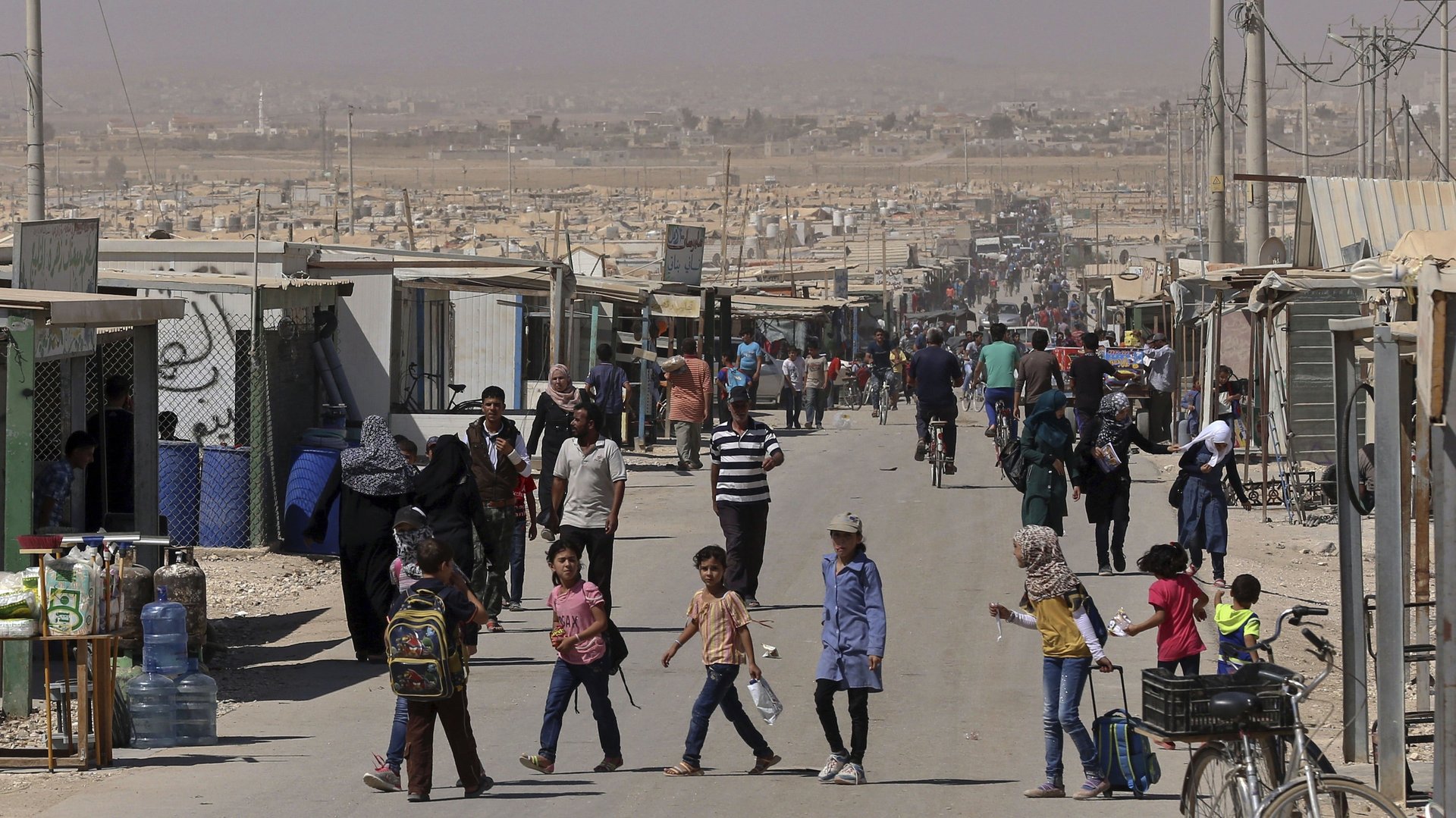Bond markets could help alleviate the Syrian refugee crisis
This post has been corrected.


This post has been corrected.
One of the biggest issues plaguing efforts to help the millions of refugees flowing out of Syria is a lack of funding. In September, the World Food Program (WFP) had to drop one-third of Syrian refugees from its food-voucher program, including nearly 300,000 in Jordan alone.
“Since the beginning of this operation, it has been hand to mouth,” Abeer Etefa, WFP regional spokesperson for the Middle East, told the Guardian. “It is nerve-wracking for the refugees and the staff.”
Etefa said the agency needed $236 million to keep its food-voucher program afloat through November—a goal that seems unlikely, considering how few major donors have stepped forward.
One way of remedying the issue may lie in bond markets. In a move that could potentially raise tens of billions in economic assistance to the region, the United Nations, World Bank, and Islamic Development Bank have unveiled a plan to issue bonds, according to the Financial Times (paywall).
The World Bank will issue special bonds guaranteed by donor countries in addition to grants to help alleviate the financial burden on host countries, such as Jordan and Lebanon, which are not eligible for actual lending from the bank due to their middle-income economic statuses. The goal is to fund the construction of hospitals, temporary housing, and schools to cope with the large numbers of recent arrivals.
Some of the bonds will be Islamic bonds, or “sukuk,” intended to target investors within the region, Reuters reports.
Other global financial institutions are eying similar plans. The European Investment Bank, for instance, intends to increase its lending to countries in the Middle East and Europe especially affected by the crisis.
“The instability in the Middle East and North Africa is affecting the whole world, it’s not just through refugees, but also through terrorism, fluctuations in oil prices,” Hafez Ghanem, the World Bank’s vice president in charge of the Middle East and Africa, told Reuters. “So it is really the whole international community has an interest in containing this and in helping those countries regain stability and get back on a path of development and growth.”
Correction: A previous version of this post stated an incorrect amount needed by the WFP to keep the food-voucher program afloat through November.